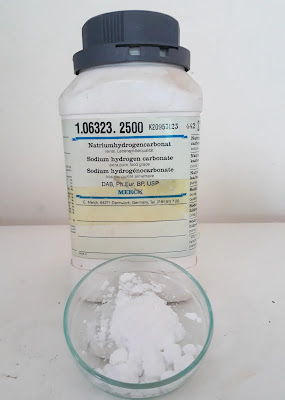Product Identification
- Read – Sodium Hydrogen Carbonate SDS!
Hazards
- Skin & eye irritation: Contact with sodium hydrogen carbonate can result in minor skin and eye discomfort.
- Respiratory problems: Large concentrations of sodium hydrogen carbonate dust in the air can lead to respiratory issues like coughing & breathlessness.
- Ingestion: Large doses of sodium hydrogen carbonate might upset your stomach and make you dizzy.
First-aid Measures
- Skin contact: With water, thoroughly wash the afflicted area.
- Eye contact: For at least fifteen minutes, rinse your eyes with water.
- Inhalation: Get outside & into some fresh air.
- Ingestion: Drink a glass of water.
Fire-Fighting Measures
- Extinguishing media: Not flammable.
- Special hazards: None knew.
- Self-contained breathing equipment & full protective gear should be worn by firefighters.
Handling & Storage
- Handling: Utilize sufficient ventilation and refrain from inhaling dust made of sodium hydrogen carbonate. Avoid making eye or skin contact.
- Storage: Store away from heat sources, sparks, & open flames in a place that is cold, dry, & well-ventilated. Maintain containers’ labels and tight seals.
Exposure Controls/Personal Protection
- Engineering controls: Maintain sodium hydrogen carbonate dust concentrations below the advised exposure limit by using proper ventilation.
- Personal protective equipment: Put on a face shield, protective gloves, and eyewear. If required, wear a respirator.
Physical & Chemical Properties
- Appearance: White, crystalline powder.
- Odor: Odorless.
- Melting point: 851 °C.
- Density: 2.17 g/cm3.
- Solubility: Yes, Highly soluble in water.

Baking soda, also known as sodium hydrogen carbonate (NaHCO3), is a common home & commercial chemical with a variety of functions, including baking, cleaning, & pH adjustment. Although it is typically regarded as a drug that is quite harmless, if handled or even used incorrectly, it can irritate & have other negative effects.
Conclusion
Baking soda, also known as sodium hydrogen carbonate, is a generally harmless chemical that has a wide range of uses. However, if handled or utilised incorrectly, it can result in moderate irritability and other negative effects. When handling or working with sodium hydrogen carbonate, adequate safety measures, such as the use of personal protective equipment, suitable ventilation, and secure storage procedures, must be taken to avoid mishaps and injuries. In the event of unintentional exposure, first aid should be administered right away, and if symptoms persist, medical treatment should be sought.
Although baking soda is typically harmless, it shouldn’t be ingested in excessive doses or used with acidic substances. In closed containers, this could lead to pressure buildup, and it could also result in stomach upset and diarrhea, respectively. One must read Sodium Hydrogen Carbonate SDS while handling this stuff.
